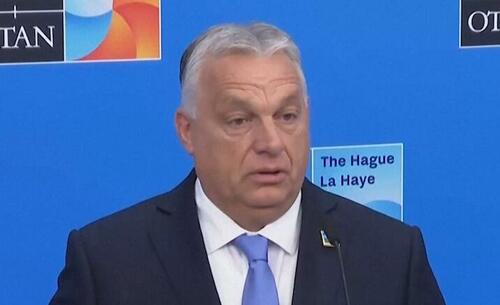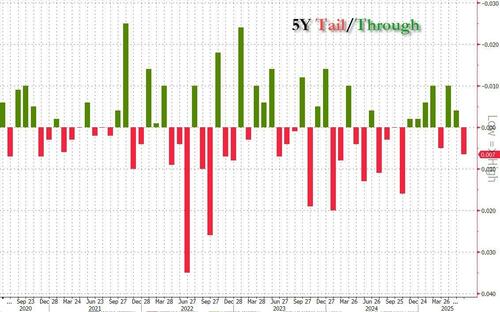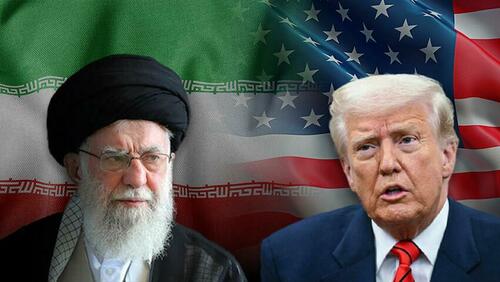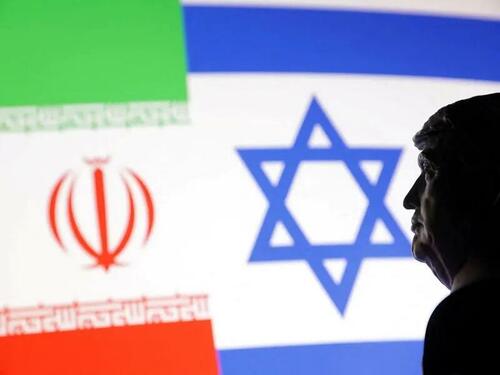
Fear Of Economic Collapse Forced China To Negotiate With Trump, Quietly Reach Out First: Reuters Report
Three weeks ago, when we first reported that as a result of the ongoing Trump trade war with China, “chinese factories are shutting down, laying off workers“, we said that as a result of this war of attrition in which the outcome of every incremental clash and battle will be used just as aggressively for media propaganda, “the fact that any marginal pain will be amplified as trade war weakness will mean that Beijing will do everything in its power to prevent the full extent of the shutdowns from being revealed.”
Sure enough, last week the WSJ reported that whereas “not long ago, anyone could comb through a wide range of official data from China… then it started to disappear.”
We detailed the unprecedented disappearance of Chinese “data”, fake as it traditionally may have been, earlier this week. But while we had our theories why China quietly vaporized hundreds of data sets – naturally one wouldn’t be deleting the data if it was good, or could at least be massaged in a credible way – it was not until today when a Reuters report confirmed what we said from day one, namely that in the long run China’s economy has more to lose than the US, where the hit would be faster but would focus primarily on the market, and once the initial selloff shock wears off leverage would swing to benefit the White House.
And just as we supposed, Beijing’s unprecedented propaganda campaign, it was the cracks in the economy that forced Xi to the negotiating. According to the Reuters report, “since U.S. President Donald Trump imposed steep tariffs on China last month, Beijing had responded in kind. On state and social media, it posted images of Mao Zedong, lambasted “imperialists,” and sent a message: capitulation to bullies is dangerous, and it wouldn’t back down.”
But behind closed doors, China was quietly preparing to do just that, and Reuters reports that according three sources, officials had grown “increasingly alarmed about tariffs’ impact on the economy and the risk of isolation as China’s trading partners have started negotiating deals with Washington.”
China’s reasons for deciding to negotiate, Washington’s letter on fentanyl, U.S. diplomatic challenges in Beijing, and the early outreach between the two sides are reported by Reuters for the first time, based on interviews with nearly a dozen government officials and experts on both sides.
As usual, China’s diplomatic efforts had two faces, one for popular domestic consumption, and one for private engagement with the adversary, in this case the US.
Sure enough, China’s foreign ministry said in a statement to Reuters that it reiterated that “China’s firm opposition to the U.S. abuse of tariffs is consistent and clear, and there is no change.” It added that “the U.S. has ignored China’s goodwill and unreasonably imposed tariffs on China under the pretext of fentanyl. This is a typical act of bullying, which seriously undermines dialogue and cooperation between the two sides in the field of drug control.”
In retrospect, the pretext may have been “fentanyl” but as we learn in a follow up report today from the WSJ, it was anything but a facade: according to the Journal, Xi Jinping is sending his top public-security aide to Switzerland as part of Beijing’s trade talks with Washington, signaling the importance of the fentanyl issue to bilateral relations.
Wang Xiaohong, who is the minister of public security and a senior leader within the State Council, China’s cabinet, will be part of the Chinese delegation led by Vice Premier He Lifeng, a trusted aide to Xi and a gatekeeper to the world’s second-largest economy…. Xi has designated Wang, a close lieutenant, as the point person in Beijing’s recent discussions with Washington over how to address President Trump’s concerns about China’s role in the fentanyl trade, The Wall Street Journal has reported, helping pave the way for the weekend trade talks.
So no, the US had not “ignored China’s goodwill”, and judging by Xi’s response, clearly the issue of fentanyl is a very serious one, and more importantly, one which will allow Trump to score a quick and easy victory over the weekend, one which will further demonstrate the Trump admin’s growing leverage in the ongoing negotiations.
But back to the Reuters report, according to which China’s Vice Foreign Minister Hua Chunying said on Friday that China has full confidence in its ability to manage U.S. trade issues, adding that “the Trump administration’s approach cannot be sustained.” Once again, however, we learn that it was China’s approach which was far more unsustainable.
The trade war between the world’s two largest economies, combined with Trump’s decision last month to impose duties on dozens of other countries, has disrupted supply chains, unsettled financial markets and stoked fears of a sharp downturn in global growth.
After Trump’s tariff salvo last month, China took a hard line in its public messaging. Beijing posted footage on its official social media feeds of a Chinese MiG-15 fighter shooting down a U.S. jet in the Korean War, with commentary: “China won’t kneel down, because we know standing up for ourselves keeps the possibility of cooperation alive, while compromise snuffs it out.” The tone began to shift on April 30, when a state media-affiliated blog said the U.S. had “proactively reached out to China through multiple channels, hoping to discuss tariffs”, commentary which according to the White House was a lie. Meanwhile, China was adamantly denying that there were any discussions taking place about trade talks, which was also a lie as just a day later we learned that discussions were in fact taking place ahead of this weekend’s trade talks.
CSIS’s Kennedy said contacts between Chinese agencies, Beijing’s embassy in Washington and the Trump administration had been increasing in frequency in recent weeks. Some in-person interactions took place at the International Monetary Fund and World Bank meetings in late April, including with Treasury Secretary Scott Bessent, which paved the way for the Swiss meeting, said Kennedy, confirming what we reported two weeks ago ( see “Chinese Delegation Spotted Entering Treasury Department, Demands Photos Be Deleted: Report“.)
More importantly, we also learn today that it was China that first reached out, more than a month ago.
After Trump’s “Liberation Day” tariffs, Reuters reports that Chinese Commerce Minister Wang Wentao quietly reached out to his U.S. counterpart, Howard Lutnick, but was rebuffed as not senior enough, according to one official familiar with the exchanges. While Trump has been pushing for direct talks with Chinese President Xi Jinping, China had originally rejected that idea as not in keeping with its traditional approach of working out the details first before the leaders sign any deal, according to public statements by both sides. Which is why after the original Chinese overture was shut down, both sides engaged in unprecedented diplomatic jingoism to deflect attention from the failure to pursue a diplomatic solution.
There’s more: another significant factor for China was Trump’s public berating of Ukrainian President Volodymyr Zelenskiy in February, said one of the sources, adding that any unscripted hostile interaction between the U.S. and Chinese leaders would represent an unacceptable loss of face for Xi.
But as messaging on both sides grew more conciliatory, China decided to put forward its vice premier and Xi confidant He Lifeng, whose direct predecessor struck the “Phase One” trade deal with the U.S. in 2019.
The move satisfied Washington’s demands for substantive talks with a senior official with direct access to Xi, but avoided exposing the Chinese leader to potential embarrassment, said one of the sources.
As for the choice of venue, the Swiss foreign ministry said that “during its recent contacts in Washington and Beijing, Switzerland expressed to the U.S. and Chinese authorities its willingness to organize a meeting between the two parties in Geneva.”
And while that addresses the how and where, the big question is why? And what is key about the Reuters report is that it confirms what we had reported all throughout the first month of the trade war, namely that “the main drivers of Beijing’s climb-down were internal signals that Chinese companies were struggling to avoid bankruptcies and to replace the U.S. market, three people familiar with the Chinese government’s thinking said.”
Some segments feeling immediate impact were furniture and toy makers, as well as textiles, one of the officials told Reuters. US diplomats in China had also been closely monitoring factory closures, strikes, and job losses in the industrial heartland in southern China, all of which were deteriorating rapidly, and confirming that Trump’s gambit had worked.
Many analysts have downgraded their 2025 economic growth forecasts for China, and Goldman and Nomura warned the trade war could cost it up to 16 million jobs. Earlier this week, admitting just how bad the local economy had gotten, China’s central bank this week announced fresh monetary stimulus (while the Fed did nothing).
China’s central bank cuts key rates, injects 1 trillion yuan 3 hours after agreeing to trade talks to prop up economy and give communist party ammo for negotiations.
Tomorrow the Fed will do precisely none of that.
— zerohedge (@zerohedge) May 7, 2025
One of the officials said Chinese companies were struggling to replace the U.S. market because developing nations cannot buy as many items, and that for many firms “this was an existential threat that needed to be resolved in days or weeks.”
In addition, Beijing – which had made loud noises warning its “allies” not to engage in negotiations with the US – was worried it was left without a place at the negotiating table while its major trading partners, such as Vietnam, India and Japan, began talks with Washington, said two officials familiar with Beijing’s thinking.
In a warning to the countries negotiating with the U.S., China’s commerce ministry said in a statement this week that “appeasement cannot bring peace, compromise cannot be respected, and adhering to principled positions and upholding fairness and justice is the right way to safeguard one’s own interests.” The statement did nothing to change the direction of negotiations.
In Geneva, Beijing appears to have modest expectations, and certainly now after a report confirming that Trump indeed has the upper hand.
Internally, China has downgraded the talks from a higher level to merely a meeting, reflecting its view that the discussions will be mostly about finding out Washington’s demands and red lines after weeks of contradictory messages by Trump and other senior U.S. officials, according to a person familiar with the matter. Still, one official said China could draw on its extensive toolbox and follow Asian neighbors in offering to buy more American liquefied natural gas, a step which could be seen as capitulation – and thus devastating to Xi’s reputation – unless it is offset by some action by Trump.
On the table may also be purchases of agricultural goods, similar to the 2019 “Phase One” deal during Trump’s first term. At the time, Beijing said it would increase purchases of U.S. agricultural products by $32 billion over two years. While other matters like the U.S.’s axing of the “de minimis” exemption for packages under $800 from China and the sale of TikTok are also likely to play a part in the broader talks, Chinese officials said they do not expect them to play a central role this weekend.
Even before triggering the broader trade war, Trump imposed a 20% tariff on Chinese goods, saying Beijing wasn’t doing enough to counter the flow of chemicals used to produce the deadly drug fentanyl. One of the moves that complicated the rapprochement, according to two officials, was a letter sent by the U.S. to China in late April that outlined the steps Trump wanted Beijing to take on fentanyl.
The document, reviewed by Reuters, caused friction with Beijing because it referenced a congressional report that asserted China, through value-added tax rebates for exporters, directly subsidizes production of fentanyl precursors for sale abroad. China denies it does so, although following the WSJ report, it appears that it actually does so.
The letter, sent to the ministries of foreign affairs, commerce, and public security, called on Beijing to publicize the crackdown on fentanyl precursors on the front page of the Communist Party mouthpiece People’s Daily; send a similar message through “internal party channels” to party members; tighten regulation of some specified chemicals; and deepen law-enforcement cooperation.
Two officials familiar with China’s reaction said it found especially the first two points “arrogant” because Beijing saw it as the U.S. dictating what China should do within its ruling apparatus.
Of course, we now know that fentanyl would feature prominently in the Geneva talks and that the U.S. government’s opening position would be to present the four points to China. A U.S. official familiar with the letter said the Trump administration simply wanted China to curb the flow of fentanyl precursors to drug cartels, in a move that would allow Xi to save some face.
Which is not to say that the US approach in the negotiations has been seamless. Complicating the negotiations, Trump’s Washington team has frozen out many U.S. embassy officials responsible for earlier contacts with Chinese counterparts, two people familiar with the matter said. Trump’s new ambassador to China, David Perdue, is slated to arrive in Beijing next week, but Deputy Chief of Mission Sarah Beran, who served as a senior official on China in the Biden administration’s National Security Council, was removed from her post this week, the two officials said.
The turmoil has resulted in lack of internal consultations on demands put forward by the American side, the officials said. An official familiar with Chinese thinking said there had been minimal contact with the U.S. embassy ahead of the Geneva talks.
In the end, however, both sides are about to sit down, and now that it is clear just how more powerful the economic hit to China has been – bizarrely receiving virtually no coverage by the anti-Trump American press which has been acting as if it works on behalf of Beijing for the past month – and how big the imbalance in political leverage between the US and China is, expect Trump to push for a quick, easy win and proceed from there with detailed negotiations that will likely take much of the next 2-3 years, and where every modest victory will be used to wash out any and all incremental market shorts, just as we saw during the first Trade War of 2018-2019.
Tyler Durden
Fri, 05/09/2025 – 14:25
ZeroHedge News
Bitcoin
Ethereum
Monero

Donate Bitcoin to The Bitstream
Scan the QR code or copy the address below into your wallet to send some Bitcoin to The Bitstream

Donate Ethereum to The Bitstream
Scan the QR code or copy the address below into your wallet to send some Ethereum to The Bitstream

Donate Monero to The Bitstream
Scan the QR code or copy the address below into your wallet to send some Monero to The Bitstream
Donate Via Wallets
Select a wallet to accept donation in ETH BNB BUSD etc..















